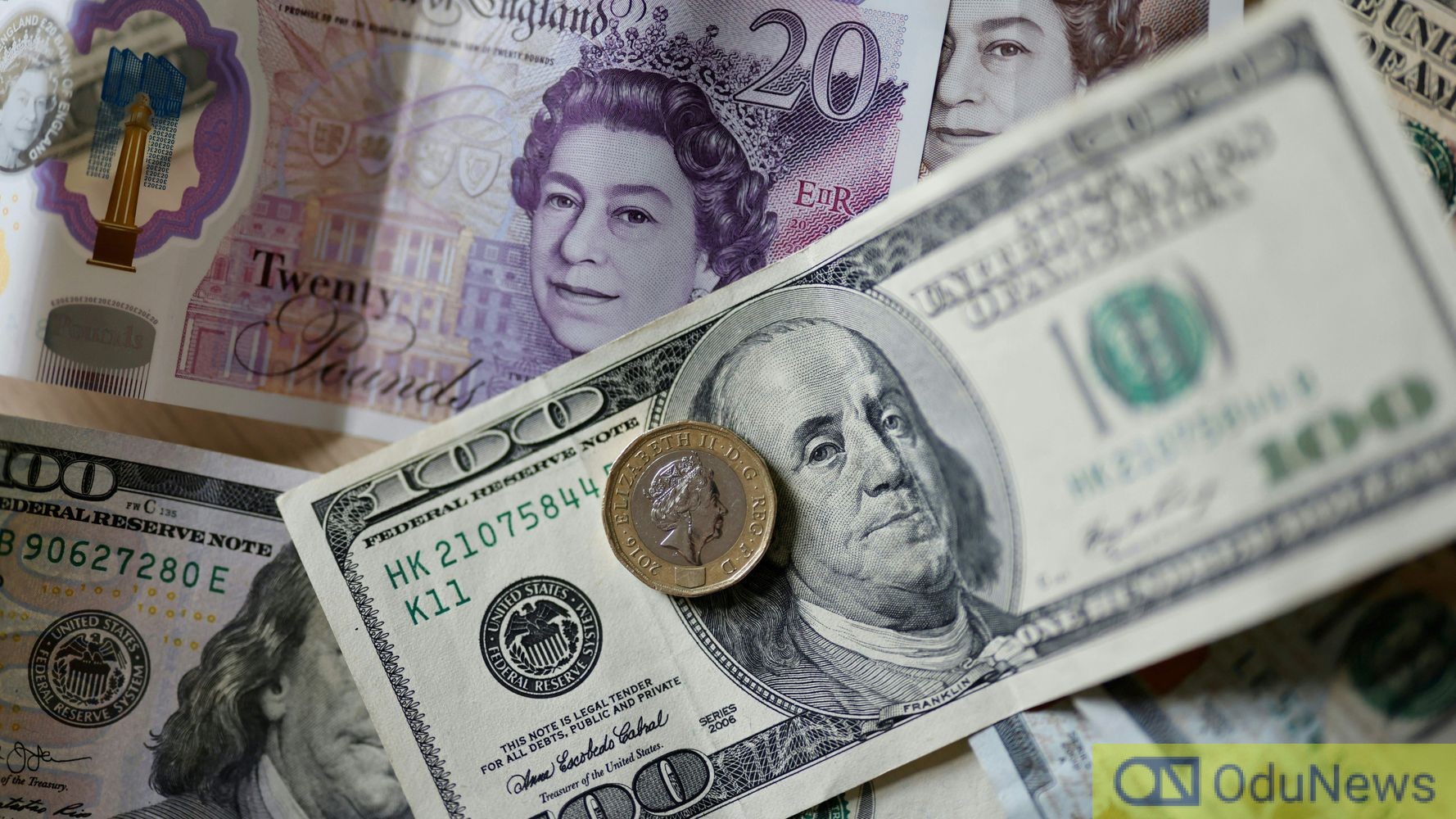The Pound fell to a 37-year low against the dollar in light of the Russia-Ukraine war and imminent global recession.

In a televised address, Russia’s President, Vladimir Putin said that a decree on partial mobilisation has been signed- the first since World War 11 – while adding that he seeks to send up to 300,000 more soldiers into battle.
He also accused the West of wanting to destroy Russia, adding the country had lots of weapons to reply.
The comments rattled investors who bought the dollar, gold and bonds, all of which are seen as less risky investments, sending traders into a nervy state.
The pound briefly touched $1.13040 – its lowest level since 1985 – before regaining ground. The fall also came after UK figures showed borrowing costs hit a fresh record for August as inflation soared.
Investigations revealed that at exactly 3 pm, the pound sterling traded at N850/£1 at the parallel markets in Lagos.
Furthermore, traders who were trading in pound sterling, which has been at low levels for weeks, were also looking ahead to a widely anticipated interest rate rise by the Federal Reserve on Wednesday.
The US Central bank has already raised interest rates four times this year to battle inflation. The Bank of England (BoE) is meanwhile expected to put up interest rates again on Thursday.
Analysts who spoke to Daily Sun said that following the development, the Monetary Policy Committee (MPC) of the Central Bank of Nigeria (CBN) would at least increase the Monetary Policy Rate (MPR) by at least 50 basis points given the continued hawkish rendition of global central banks amid a comfortable level of domestic growth and persistent inflationary pressures.
“When the Committee meets on the 26th and 27th of September 2022, we expect it to assess the domestic and global economic environment, specifically the key economic and financial indicators since its last policy meeting.
In our opinion, the Q2 2022 growth print (+3.54 per cent y/y) suggests the Committee could become cautiously comfortable with the growth levels, giving it a much-needed reason to maintain its fight against the stubbornly-high inflationary pressures, more so than a sustained negative real interest rate could dampen domestic investments and undermine the stability of the local currency.
Moreover, the more hawkish rendition from global central banks also supports the Committee towing the same path to reduce external pressures. Thus, we think further tightening is necessary to anchor inflation expectations”, analysts at Cordros Research said.


Comments are closed.